The number of civil servants on permanent and pensionable terms has reduced by 8,905 in the first two years of President William Ruto’s administration. This drop reflects a growing trend where the government is cutting back on long-term employment while increasing short-term contracts.
By June 2024, the total number of government employees covered under medical insurance had declined to 133,980, a significant drop from the 142,885 recorded in June 2022. This suggests that more employees are leaving the public service, either through retirement, resignation, or retrenchment, without being replaced by permanent staff.
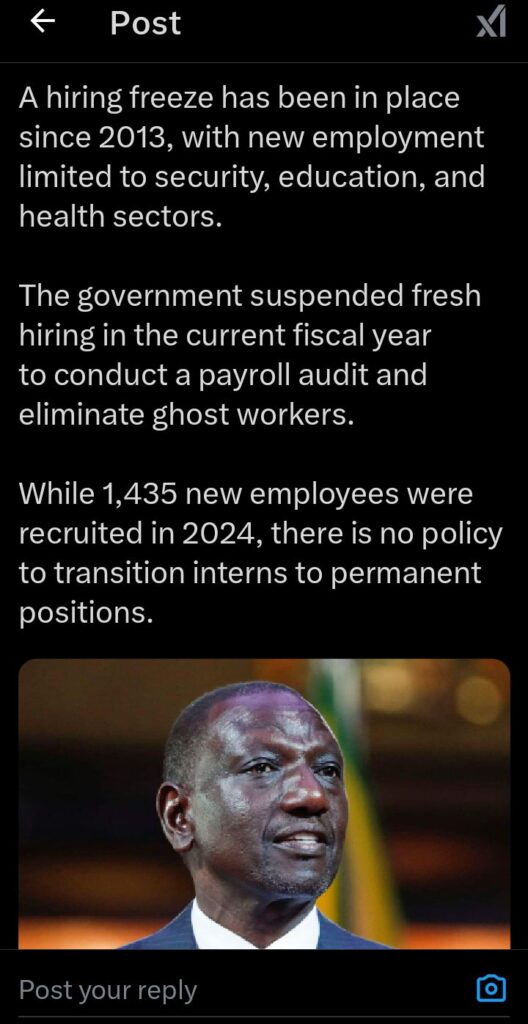
At the same time, the government has increased the recruitment of graduate interns, placing 9,100 individuals on one-year contracts. These interns receive a monthly stipend of Ksh 25,000, but they do not enjoy the benefits that come with permanent employment, such as job security, pensions, or comprehensive medical cover.
The government has no policy in place to transition these interns into permanent roles, meaning they are likely to exit after their contracts expire, adding to the instability in the public workforce.
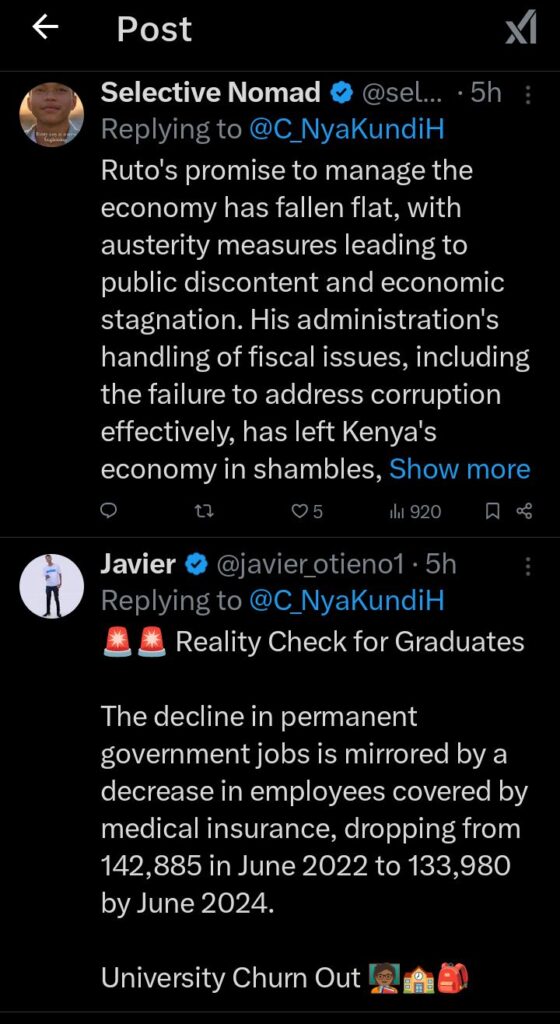
A hiring freeze has been in effect since 2013, restricting new employment to only a few sectors such as security, education, and health. This limitation has made it difficult for other government departments to replace retiring staff or fill critical vacancies.
In the current fiscal year, the government has entirely suspended fresh hiring as it carries out a payroll audit aimed at identifying and removing ghost workers. While this exercise may help eliminate fraudulent salary payments, it has also contributed to the overall reduction in public sector employment.
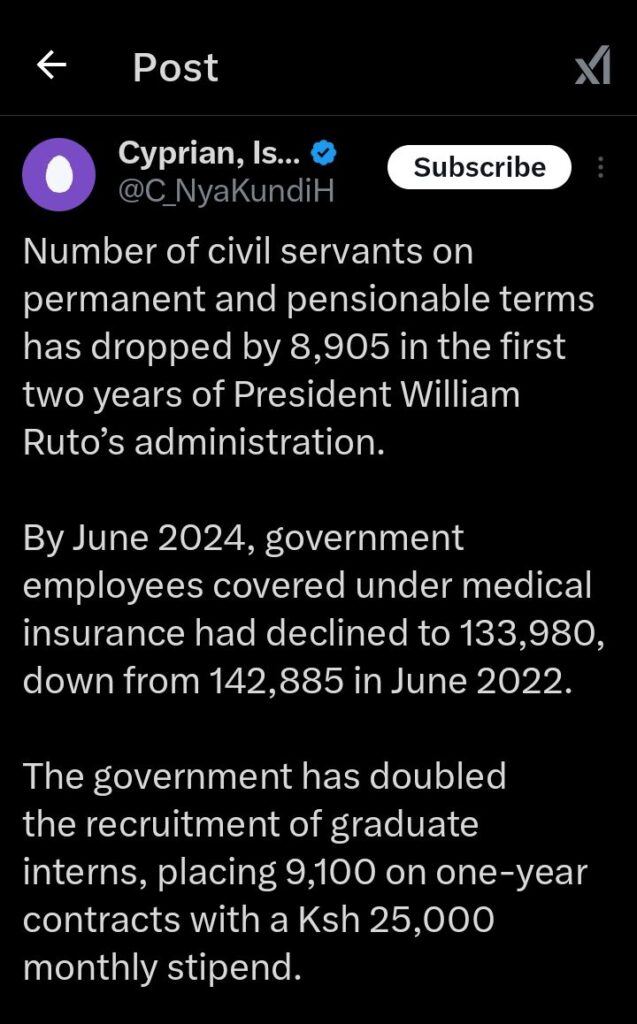
Despite the suspension, 1,435 new employees were recruited in 2024. However, this number is too small to compensate for the thousands of civil servants who have exited the workforce. Without a clear employment policy for new graduates and interns, the government risks creating a situation where essential services suffer due to understaffing.
The reliance on short-term contracts and the reduction in permanent employees raise concerns about the long-term stability of the civil service. Experienced personnel are leaving, and their knowledge is not being replaced by equally skilled individuals.
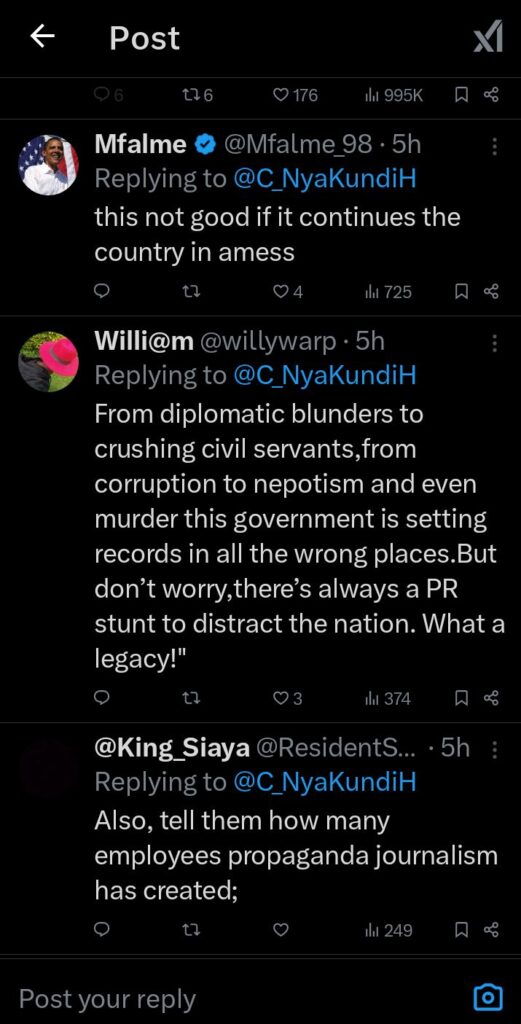
While cost-cutting and payroll auditing are necessary, the government needs to balance these measures with ensuring that public services remain efficient and effective.







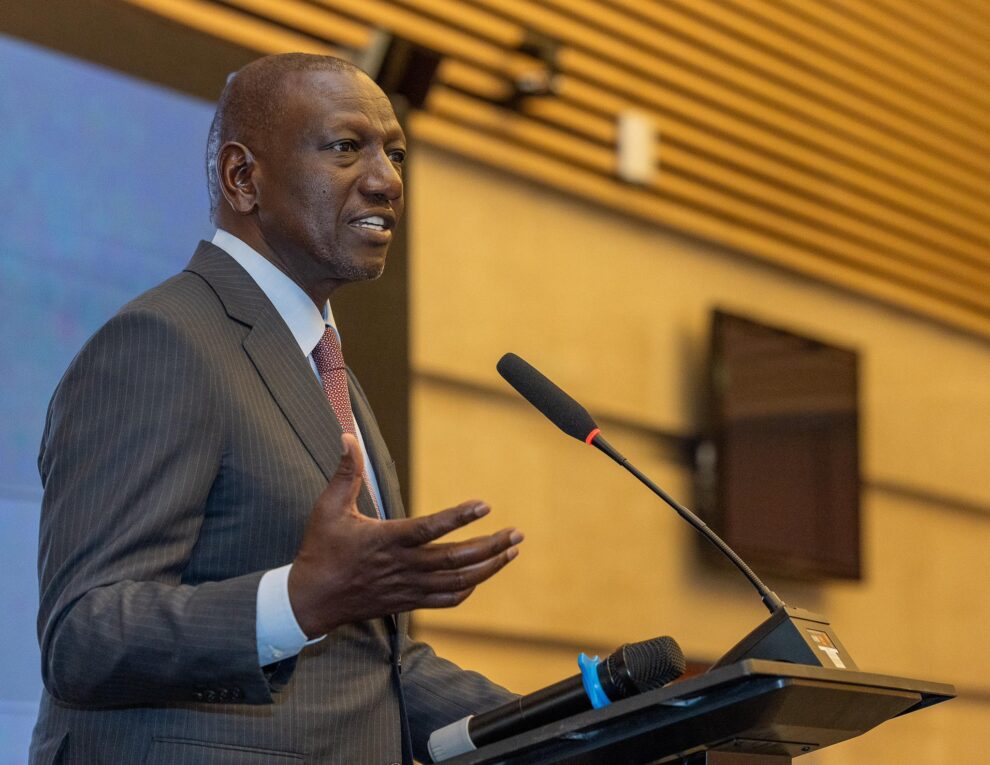













Add Comment